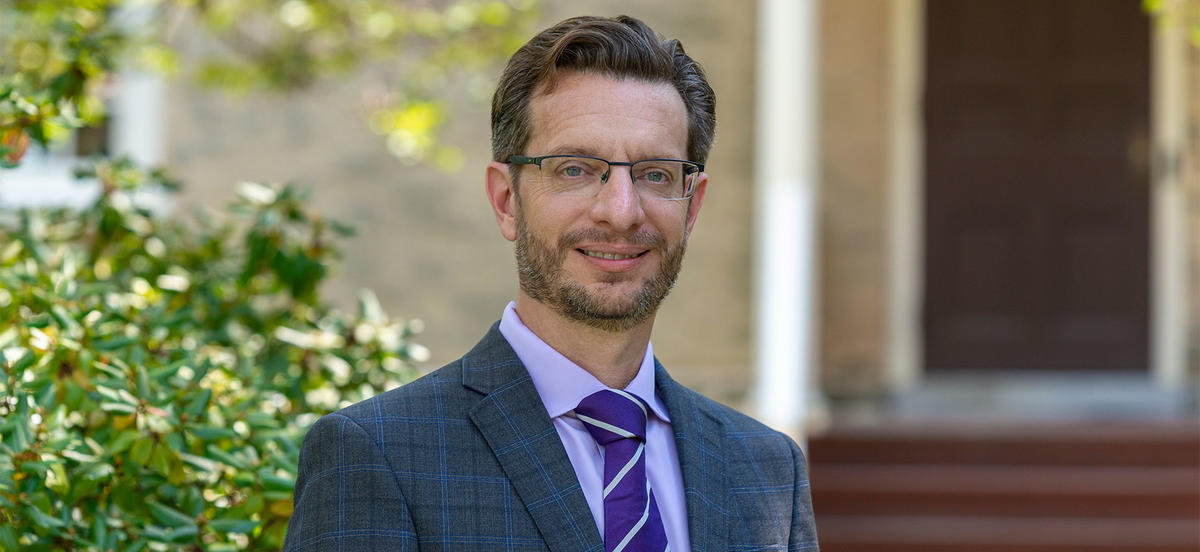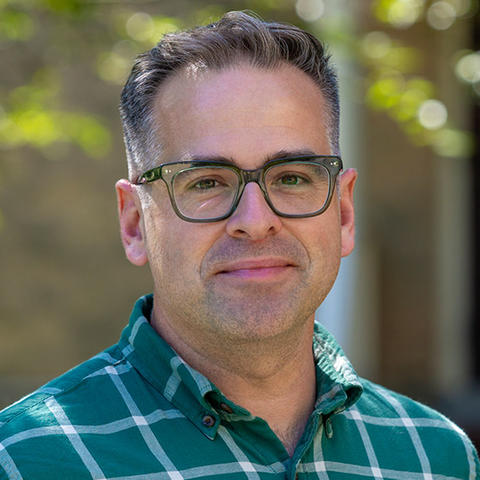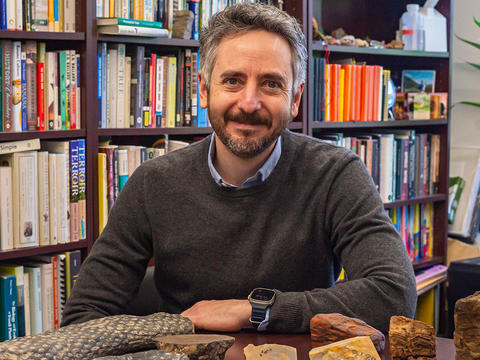Classics Professor Receives Digital Humanities Advancement Grant

Professor of Classics Bret Mulligan. Photo by Patrick Montero.
Details
Professor of Classics Bret Mulligan has received a Digital Humanities Advancement Grant from the National Endowment For the Humanities (NEH). The grant will fund his continuing work on web applications designed to help educators attain greater awareness of the match between reader knowledge and textual difficulty when assigning Latin and ancient Greek texts.
Mulligan’s project, Bridge Readability Tools, addresses a void impeding access to Latin and ancient Greek texts. It’s a suite of interconnected readability tools supported by Haverford College Library’s Digital Scholarship Group and contributions from Haverford students and alums as well as educators from across the country.
“For English and some other modern languages, there's a robust infrastructure for readability metrics,’’ says Mulligan. “You can look on the back of a children’s book, for example, and you'll see an indication of its grade level or some other proprietary ranking. Textual difficulty is an important piece of information in any educational environment. But this infrastructure is largely absent for historical languages like Latin.”
The $148,015 grant, which will span the next two years, is one of only 13 awarded in NEH’s digital humanities category. It’s designed to support the implementation of innovative digital humanities projects that have successfully completed a start-up phase and demonstrated their value to the field.
Mulligan’s project involves multiple interconnected applications. The first, a customized vocabulary list app called “Bridge/Lists”, launched in 2014, is used widely within the world of digital humanities. Additional tools that will be developed with the support of the grant will allow users to visualize and compare the reading difficulty of different texts, discover more readable texts, and assist with accurate tagging of texts through machine learning.
“When we look at the classical texts that are being read in many classes, often we’re asking students to read very difficult texts quite early in the cycle of language acquisition,’’ says Mulligan. “Students experience different trainings. They've used different textbooks, they've read different works, they've learned different things. So, we are working to develop a suite of digital tools that will let instructors and readers approximate the kinds of level information you get from the back of a children’s book and discover readable texts. That's Bridge Readability Tools.’’
In all, the NEH awarded $41.3 million for 280 humanities projects nationwide, spread over 18 categories. Grants in the digital humanities group totaled $2.48 million. They included projects to design and develop a prototype open-source tool for 360-degree mapping of historical photographs and an expansion of the Allmaps software interface to allow for georeferencing of digitized historical maps.
“These 280 new grant awards underscore the wide range of exemplary, fascinating, and impactful humanities work that scholars, practitioners, and institutions are conducting in all corners of the country,” said NEH Chair Shelly C. Lowe.
The goal of Mulligan and the students working under the guidance of Haverford Library’s Digital Scholarship Group is to have all applications up and running over the two years of the grant’s funding. “But we won't just be putting it on a website, turning off the lights, and walking away in two years,’’ says Mulligan. “It's hopefully the start, a step on the way to continual innovation, refinement, and expansion. As more people start thinking about readability, thinking about ways we might use it, and thinking about the kinds of information we might want to know, that's where there’s an exciting area for future growth.’’
— Sam Donnellon




